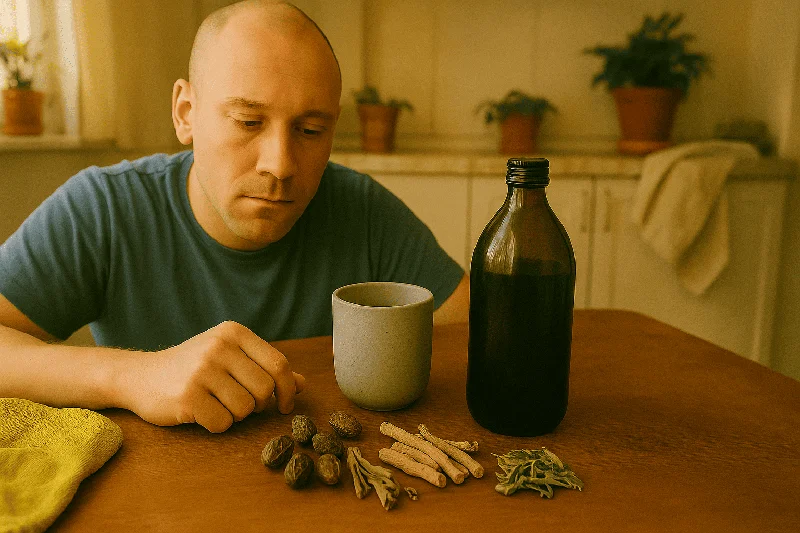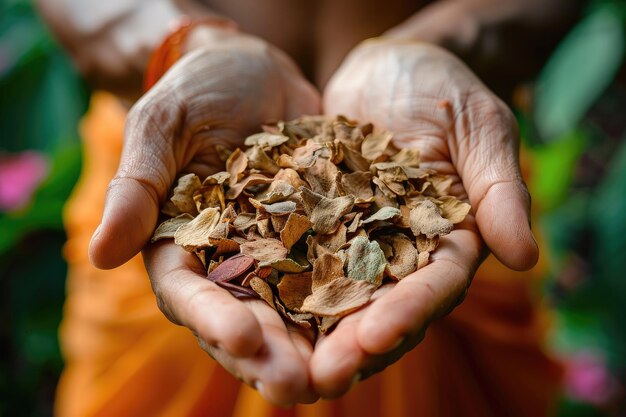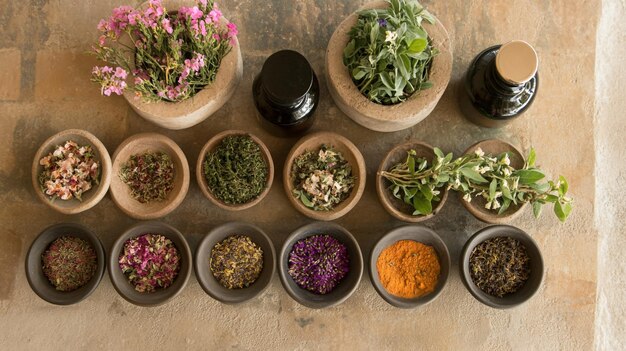Ask Ayurvedic doctor a question and get a consultation online on the problem of your concern in a free or paid mode. More than 2,000 experienced doctors work and wait for your questions on our site and help users to solve their health problems every day.
Ayurvedic Medicine for Leukemia – Natural Healing Approaches for Blood Cancer

Introduction to Ayurvedic Medicine for Leukemia
Leukemia, a type of blood cancer that affects the bone marrow and blood cells, can be a challenging condition to manage. While conventional treatments like chemotherapy and radiation are commonly used, Ayurveda offers complementary approaches that can help support the body, boost immunity, and alleviate side effects associated with leukemia treatment. Ayurvedic medicine focuses on balancing the body's doshas, enhancing digestion, detoxifying the body, and improving overall vitality. Through a combination of herbs, dietary changes, and lifestyle modifications, Ayurvedic remedies aim to support the healing process and enhance the quality of life for individuals diagnosed with leukemia.
Don't wait or self medicate. Start chat with Doctor NOW
Historical Roots & Ayurvedic Significance
Ayurveda, one of the oldest systems of medicine, emphasizes the importance of maintaining balance within the body and mind to prevent and treat diseases. In Ayurveda, leukemia is viewed as a condition that arises due to an imbalance in the body’s Pitta and Vata doshas, which can affect the production and quality of blood. Ayurvedic texts describe the use of herbal remedies to purify the blood, improve circulation, and promote the overall health of the body’s systems. Though Ayurveda does not claim to cure leukemia directly, it supports the body’s healing processes and helps individuals manage symptoms and side effects during conventional treatments.
Key Ayurvedic Herbs for Leukemia Treatment
1. Ashwagandha (Withania somnifera)
Ashwagandha is a powerful adaptogenic herb that helps to strengthen the immune system, reduce stress, and improve overall vitality. In leukemia patients, Ashwagandha can help alleviate fatigue, improve energy levels, and support the body’s natural defense mechanisms. It is also known to have anti-inflammatory and
antioxidant properties, which may help protect healthy cells during cancer treatment. Ashwagandha can also help reduce anxiety and stress, which are common among cancer patients.
2. Guduchi (Tinospora cordifolia)
Guduchi, also known as Giloy, is a highly regarded herb in Ayurveda for its immune-boosting and detoxifying properties. It is often used in the treatment of various types of cancers to enhance the body’s resistance to infection and inflammation. Guduchi helps strengthen the immune system by stimulating the production of white blood cells, which are essential in fighting cancer. It is also known for its ability to purify the blood and support liver health, which can be compromised during leukemia treatments.
3. Turmeric (Curcuma longa)
Turmeric is a well-known anti-inflammatory herb that contains curcumin, a compound with potent antioxidant and anticancer properties. Curcumin has been studied for its potential to inhibit the growth of cancer cells, making turmeric an important herb in the Ayurvedic approach to managing leukemia. It supports liver detoxification and helps reduce the inflammation that often accompanies cancer and its treatments. Regular consumption of turmeric may help alleviate some of the side effects of chemotherapy, such as nausea and pain.
4. Triphala
Triphala is a combination of three fruits: Amalaki (Amla), Haritaki, and Bibhitaki. It is widely used in Ayurveda for its detoxifying and rejuvenating properties. Triphala helps cleanse the digestive system, which is crucial in maintaining good health during cancer treatment. It supports the body’s detoxification processes, helping to remove waste and toxins that may build up due to chemotherapy or radiation therapy. Additionally, Triphala boosts immunity and promotes the overall vitality of the body.
5. Neem (Azadirachta indica)
Neem is well known for its antimicrobial, anti-inflammatory, and blood-purifying properties. It can help reduce the toxic load in the body and purify the blood, which may help improve overall health during leukemia treatment. Neem can also assist in strengthening the immune system and may help prevent infections, which are common in individuals undergoing chemotherapy. It is often used to support detoxification and promote healthy skin, which may be impacted by cancer treatments.
6. Ashoka (Saraca asoca)
Ashoka is a herb that is often used in Ayurveda for its therapeutic benefits in managing blood-related disorders. It is known to improve the health of the blood and may help in treating anemia, a common issue among leukemia patients due to the depletion of red blood cells. Ashoka has anti-inflammatory and antioxidant properties that may help reduce the impact of leukemia on the body’s tissues.
Ayurvedic Approaches for Managing Leukemia
1. Strengthening the Immune System
The immune system plays a crucial role in the management of leukemia. Ayurvedic medicine emphasizes using herbs like Guduchi, Ashwagandha, and Triphala to support the immune system. These herbs work to enhance the production of healthy white blood cells and improve the body’s natural defense mechanisms. Regular consumption of immune-boosting herbs helps protect the body from infections, which can be a serious concern during cancer treatment.
2. Detoxification and Blood Purification
Ayurveda places a significant emphasis on detoxification, especially in cases of cancer. Herbs like Neem, Turmeric, and Guduchi are known for their ability to purify the blood and remove toxins from the body. Detoxification helps cleanse the body of harmful chemicals and waste products that may accumulate due to chemotherapy and radiation therapy. By supporting the liver and kidneys, these herbs ensure that the body is functioning optimally during the treatment process.
3. Reducing Inflammation and Pain
Chemotherapy and other cancer treatments can cause inflammation and pain. Ayurvedic herbs like Turmeric and Ashwagandha are anti-inflammatory agents that help reduce pain and swelling. Regular use of these herbs can alleviate some of the discomforts caused by leukemia and its treatments. Additionally, the calming properties of Ashwagandhahelp manage stress, which is often high during cancer treatment.
4. Supporting Digestive Health
Leukemia and its treatments can weaken the digestive system. Ayurveda encourages the use of digestive herbs like Triphala to help maintain digestive health. Triphala aids in improving digestion, preventing constipation, and ensuring the efficient absorption of nutrients. It is also beneficial in maintaining the overall health of the gastrointestinal tract, which is often affected by chemotherapy and radiation.
5. Improving Vitality and Reducing Fatigue
Fatigue is a common symptom in leukemia patients, particularly those undergoing chemotherapy. Ashwagandha and Guduchi are both adaptogenic herbs that help restore energy levels and improve stamina. These herbs support overall vitality, helping the body recover from the exhaustion caused by treatment. Ashwagandha also promotes better sleep quality, further contributing to the body’s healing and recovery process.
How Ayurvedic Medicine Works for Leukemia
Ayurvedic medicine works by addressing the root causes of leukemia, balancing the body’s doshas, and strengthening the body's immune system. Herbs like Ashwagandha, Guduchi, and Turmeric are not only known for their anticancer properties but also their ability to reduce inflammation, enhance detoxification, and support the nervous and digestive systems. By improving circulation, detoxifying the body, and reducing the toxic load, Ayurveda helps to optimize the body's ability to fight leukemia and the side effects of cancer treatments.
Choosing the Right Ayurvedic Treatment
It is essential to consult an experienced Ayurvedic practitioner before starting any Ayurvedic treatment for leukemia. An Ayurvedic practitioner will evaluate your body constitution (Prakriti), imbalances, and current health status to create a personalized treatment plan that complements conventional treatment. Proper guidance on dosages and combinations of herbs is crucial to ensure maximum efficacy and safety.
Recommended Dosage & How to Use Ayurvedic Remedies
The dosage of Ayurvedic herbs can vary depending on the individual’s health condition and constitution. Typically:
- Ashwagandha: 500 mg to 1 g twice daily, as recommended by your practitioner.
- Turmeric: 1/2 to 1 tsp per day, mixed with warm milk or water.
- Guduchi: 1-2 tsp of powder or as directed.
- Triphala: 1 tsp in the evening, with warm water.
- Neem: Neem capsules or powder, 1-2 times daily, as per practitioner recommendations.
Potential Side Effects & Precautions
While Ayurvedic herbs are generally safe when used under proper guidance, there are some precautions:
- Pregnancy & Nursing: Always consult your Ayurvedic practitioner before using any herbs during pregnancy or breastfeeding.
- Herb-Drug Interactions: If you are undergoing chemotherapy or radiation, consult with your oncologist and Ayurvedic practitioner about any potential interactions between herbal treatments and conventional medications.
- Allergic Reactions: Though rare, some individuals may experience mild allergic reactions to specific herbs like Turmeric or Neem. Always perform a patch test before use.
Frequently Asked Questions for Ayurvedic Medicine for Leukemia
Can Ayurveda cure leukemia?
While Ayurveda cannot cure leukemia, it can support the healing process by strengthening the immune system, reducing the side effects of chemotherapy, and improving overall well-being.
Which herbs are best for leukemia treatment?
Herbs like Ashwagandha, Guduchi, Turmeric, Neem, and Triphala are commonly used in Ayurveda for their immune-boosting, detoxifying, and anti-inflammatory properties.
Is Ayurvedic treatment safe during chemotherapy?
Yes, Ayurvedic treatments can complement chemotherapy by helping to manage side effects, improve digestion, and boost energy levels. However, always consult with both your oncologist and an Ayurvedic practitioner before starting any new herbs or treatments.
Can Ayurvedic medicine reduce the side effects of chemotherapy?
Yes, herbs like Ashwagandha and Turmeric can help reduce the fatigue, inflammation, and digestive issues that often arise during chemotherapy.
How long should Ayurvedic treatments be used for leukemia?
Ayurvedic treatments are often used alongside conventional treatments, with a typical duration of 4-6 weeks. However, the treatment length may vary depending on the individual's condition and response to the remedies.
Can Ayurvedic remedies be used as the only treatment for leukemia?
Ayurvedic remedies should be used as complementary treatments and not as a replacement for conventional medical treatments like chemotherapy or radiation. Always consult with your healthcare team before making changes to your treatment plan.
Where can I get Ayurvedic remedies for leukemia?
Authentic Ayurvedic remedies can be obtained from certified Ayurvedic practitioners, Ayurvedic pharmacies, or reputable online stores specializing in natural health products.
Conclusion & Expert Insights
Ayurvedic medicine offers valuable support for individuals with leukemia by improving immune function, reducing inflammation, promoting detoxification, and enhancing vitality. When used in conjunction with conventional treatments, Ayurveda can help manage symptoms, reduce side effects, and improve the quality of life for leukemia patients. Always consult with an experienced Ayurvedic practitioner to create a personalized treatment plan that aligns with your health goals.
References & Further Reading
- Sharma, P.V. (1995). Ayurvedic Healing: A Comprehensive Guide.
- Lad, V. (2002). Ayurveda: The Science of Self-Healing.
- National Institute of Ayurveda:
- Journal of Ayurveda and Integrative Medicine for research articles on cancer treatments and immune support.



